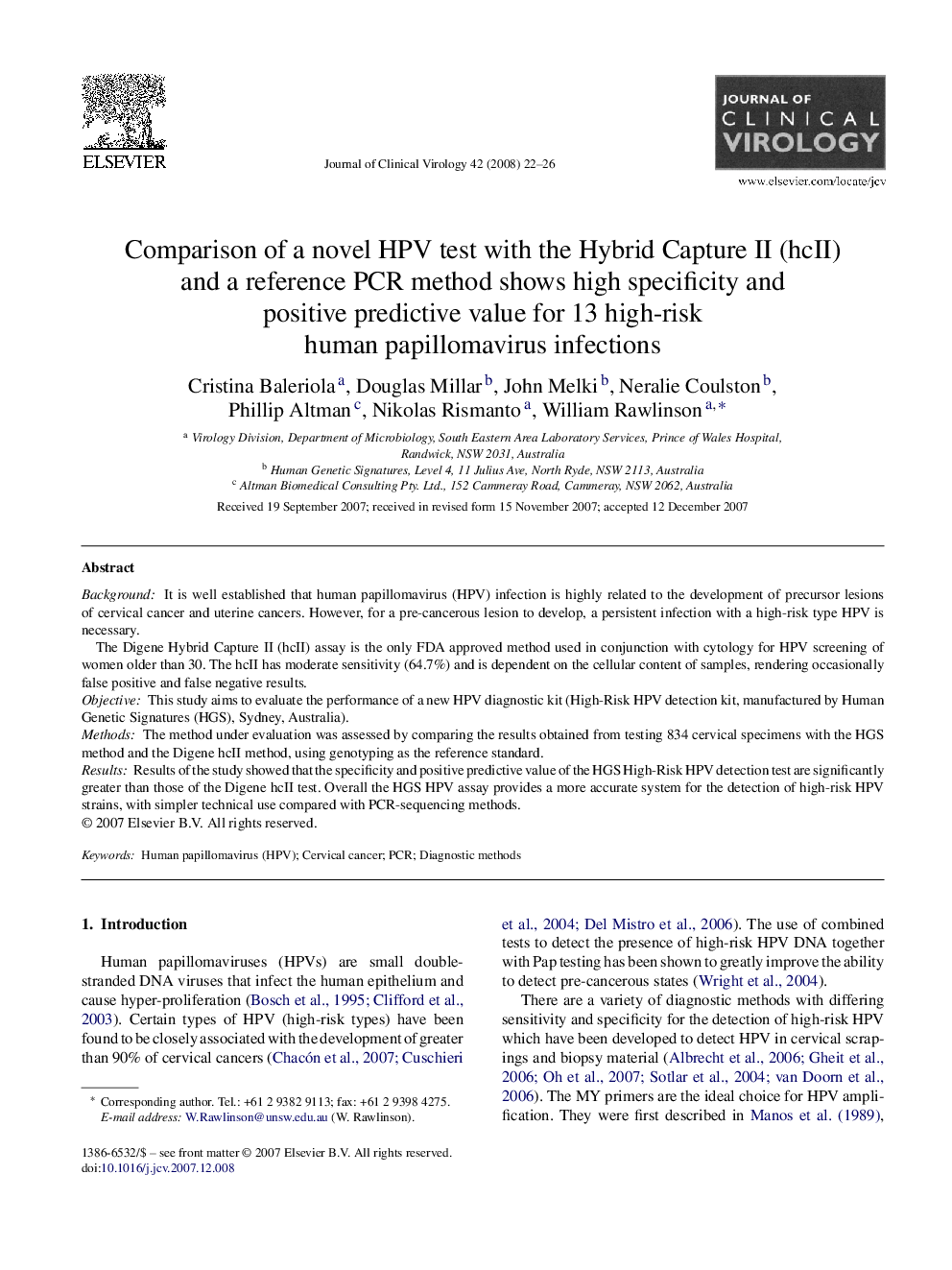| Article ID | Journal | Published Year | Pages | File Type |
|---|---|---|---|---|
| 3370784 | Journal of Clinical Virology | 2008 | 5 Pages |
BackgroundIt is well established that human papillomavirus (HPV) infection is highly related to the development of precursor lesions of cervical cancer and uterine cancers. However, for a pre-cancerous lesion to develop, a persistent infection with a high-risk type HPV is necessary.The Digene Hybrid Capture II (hcII) assay is the only FDA approved method used in conjunction with cytology for HPV screening of women older than 30. The hcII has moderate sensitivity (64.7%) and is dependent on the cellular content of samples, rendering occasionally false positive and false negative results.ObjectiveThis study aims to evaluate the performance of a new HPV diagnostic kit (High-Risk HPV detection kit, manufactured by Human Genetic Signatures (HGS), Sydney, Australia).MethodsThe method under evaluation was assessed by comparing the results obtained from testing 834 cervical specimens with the HGS method and the Digene hcII method, using genotyping as the reference standard.ResultsResults of the study showed that the specificity and positive predictive value of the HGS High-Risk HPV detection test are significantly greater than those of the Digene hcII test. Overall the HGS HPV assay provides a more accurate system for the detection of high-risk HPV strains, with simpler technical use compared with PCR-sequencing methods.
